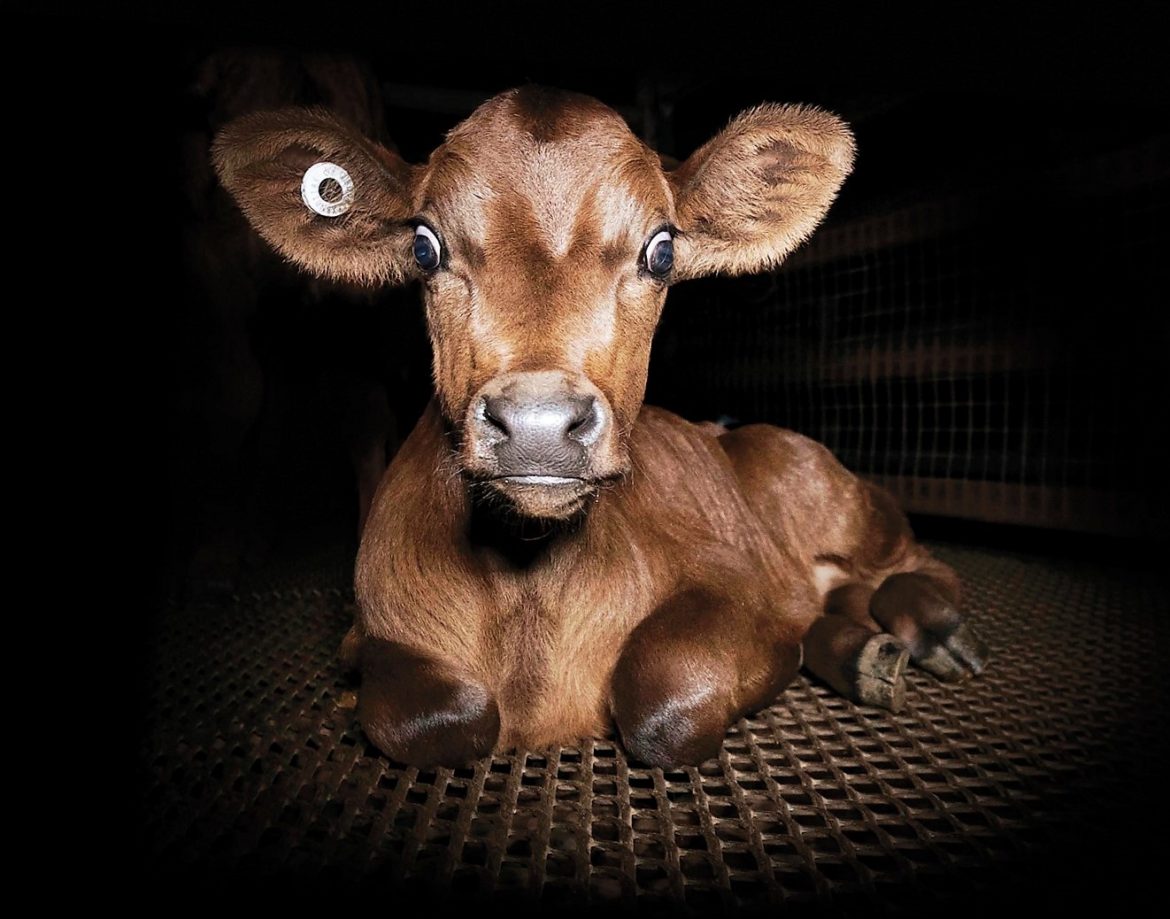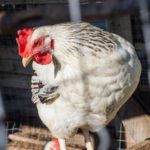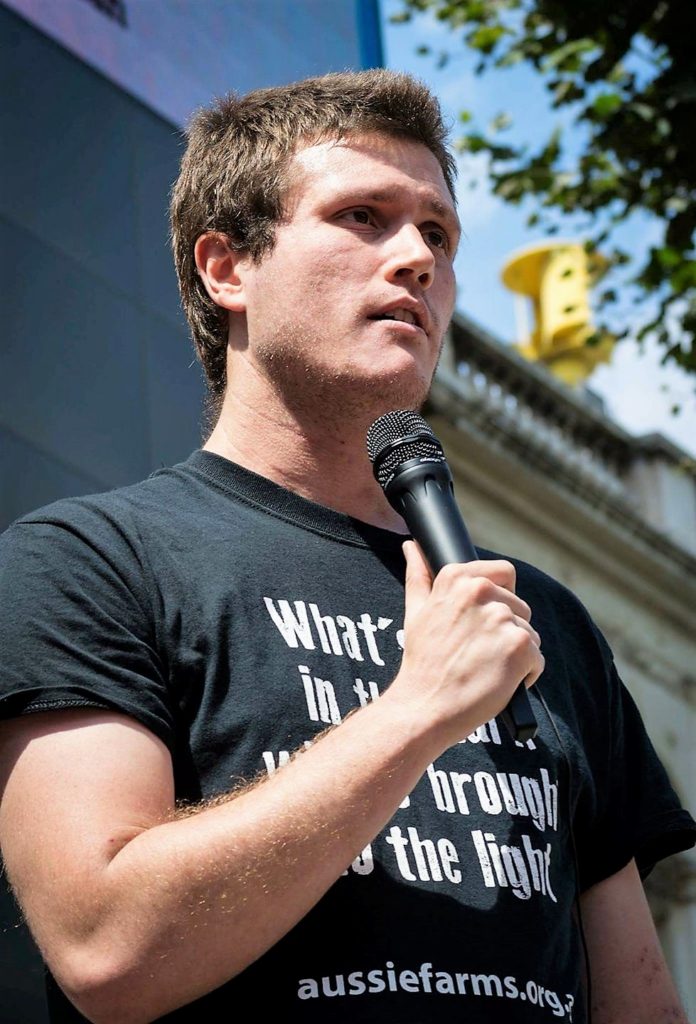
Chris Delforce
In a culture saturated with rumours, “fake news” and corporate spin, truth has become increasingly elusive and difficult to grasp.
Yet truth is what acclaimed director and writer Chris Delforce has brought to audiences across the world with his highly-anticipated feature-length documentary Dominion (click to view a trailer) which recently held its sold-out UK premiere screening in London.
Narrated by Joaquin Phoenix, Rooney Mara, Sia, Sadie Sink and Kat Von D, and co-produced by Earthlings creator Shaun Monson, Dominion exposes the dark underbelly of modern animal agriculture and explores other ways in which animals are exploited and abused by humans, including clothing, entertainment and research.
We are excited and privileged to speak to Chris who shares his thoughts on the film’s production, his overcoming of opposition and how faith communities can champion the cause of animals.
Can you tell us about your background and what led you to create Dominion?
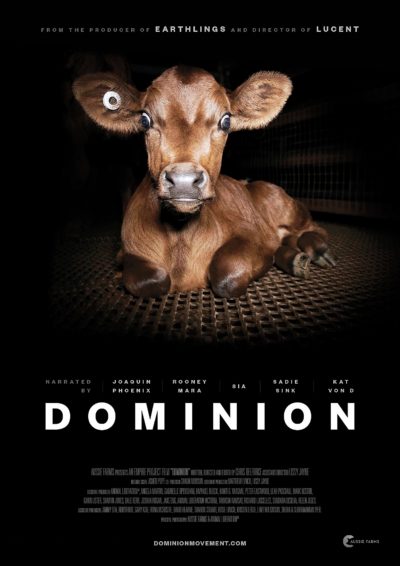 I went vegetarian when I was 11 after having a thought that animals probably didn’t want to be eaten. It was a long time before I started looking into the deeper philosophy behind it, but even then I remained unaware of the inherent cruelty of the egg and dairy industries. I started a short-lived “youth vegetarian association” at my university, and through that became friends with some vegans in the local Animal Liberation chapter. As soon as I learned about the killing of male chicks and calves, I went vegan, and realised that there was so much I didn’t know about. I watched Earthlings and was so inspired by it, but whenever I tried to show non-vegan friends, they’d say things like “oh that doesn’t happen here in Australia”, so I started going to farms and slaughterhouses to educate myself and to gather evidence to show that things were just as bad here. For a few years I – and the small team I was working with – were focusing mainly on pig farms, which led to my first film Lucent in 2014. I knew there was a need for a film of a much wider scope though, showing how other species are made to suffer for human ends and questioning whether we have the moral right to use others as we please simply because we view them as inferior to ourselves.
I went vegetarian when I was 11 after having a thought that animals probably didn’t want to be eaten. It was a long time before I started looking into the deeper philosophy behind it, but even then I remained unaware of the inherent cruelty of the egg and dairy industries. I started a short-lived “youth vegetarian association” at my university, and through that became friends with some vegans in the local Animal Liberation chapter. As soon as I learned about the killing of male chicks and calves, I went vegan, and realised that there was so much I didn’t know about. I watched Earthlings and was so inspired by it, but whenever I tried to show non-vegan friends, they’d say things like “oh that doesn’t happen here in Australia”, so I started going to farms and slaughterhouses to educate myself and to gather evidence to show that things were just as bad here. For a few years I – and the small team I was working with – were focusing mainly on pig farms, which led to my first film Lucent in 2014. I knew there was a need for a film of a much wider scope though, showing how other species are made to suffer for human ends and questioning whether we have the moral right to use others as we please simply because we view them as inferior to ourselves.
What are you hoping to achieve with the film?
Industries that exploit and abuse animals rely on secrecy, because no good person would support them if they knew the truth. I don’t believe that a business based on deception and suffering has any right to exist, so this film is about forcing transparency on them, and giving consumers the right to see for themselves what they’re supporting whenever they purchase meat, dairy and eggs, or wear animal skins or furs, or partake in events where animals are used for entertainment. By giving them that information – information that has been intentionally and maliciously withheld from them for so long – we’re empowering them to make their own informed decisions. I want to see a world where businesses can no longer get away with ridiculous marketing slogans like “humane slaughter”, “high welfare” or “free range”.
How did you obtain your striking footage, and did you encounter any opposition while filming?
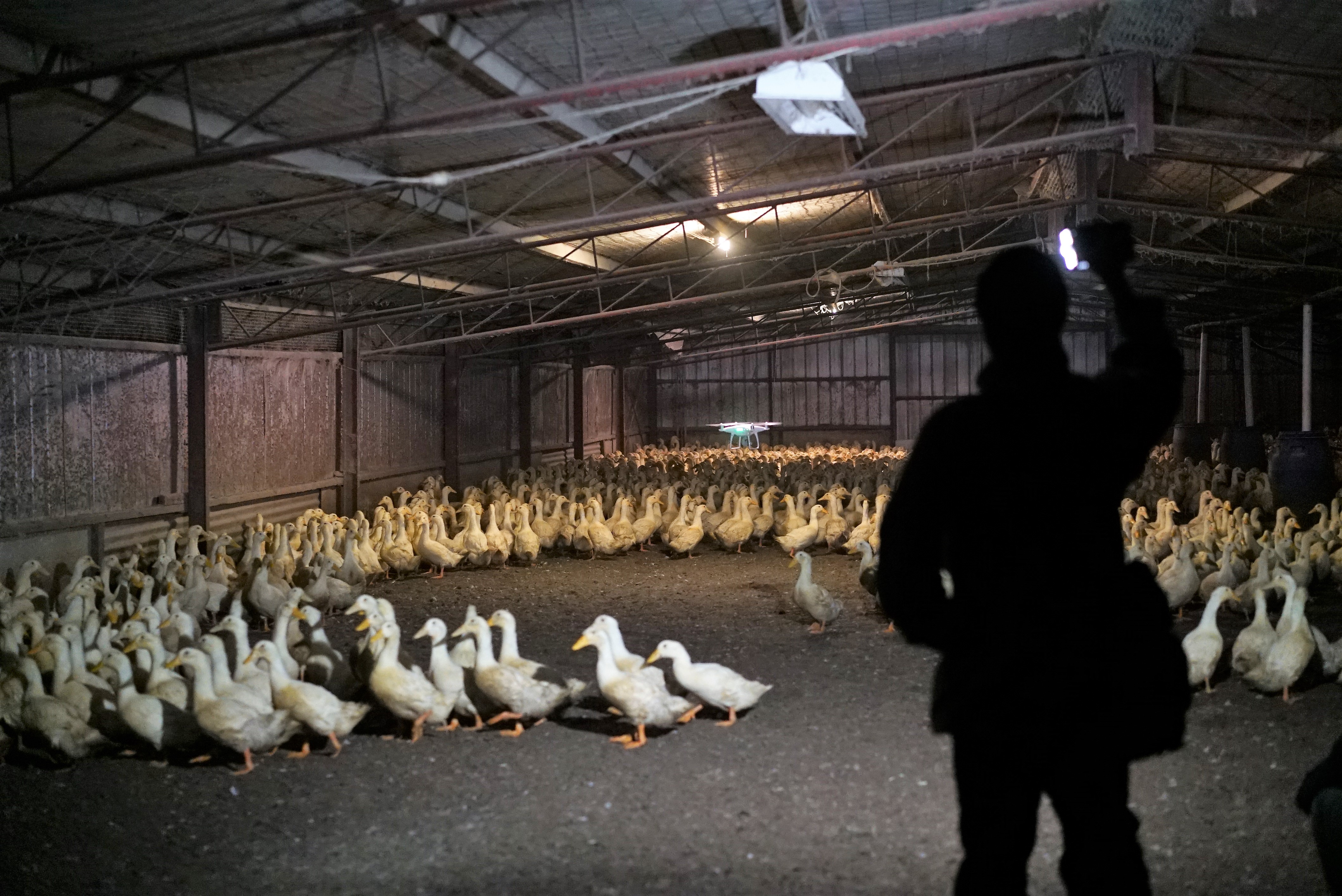 Much of the footage was captured on handheld cameras, after sneaking into these places in the middle of the night. Other times, hidden cameras would be installed to see what happens during a regular operating day when workers don’t think they’re being watched, and then the cameras would be retrieved afterwards. Some of the footage involved members of our team getting employment in farms and slaughterhouses, and wearing hidden cameras on themselves. We also made extensive use of drones, to capture the scale of these facilities in ways that weren’t previously possible.
Much of the footage was captured on handheld cameras, after sneaking into these places in the middle of the night. Other times, hidden cameras would be installed to see what happens during a regular operating day when workers don’t think they’re being watched, and then the cameras would be retrieved afterwards. Some of the footage involved members of our team getting employment in farms and slaughterhouses, and wearing hidden cameras on themselves. We also made extensive use of drones, to capture the scale of these facilities in ways that weren’t previously possible.
There were plenty of close calls along the way – delivery trucks or workers turning up unexpectedly during night investigations, security guards, alarm systems – but always with these investigations, safety is a priority.
What particularly shocked you about the norms of the meat industry?
The gas chambers used in pig slaughterhouses would have to be one of the most disturbing things we uncovered – it’s just such a brutal, merciless system that surely ought to have no place in modern society, and yet, it’s called “humane” and “best practice” and, until exposure, was endorsed by one of the leading animal welfare regulators in Australia, the RSPCA. That leads to another point – how happily these industries are to so blatantly lie and deceive. They’re so confident in their own power, they seem to feel they can say pretty much anything they want, because they know that no authority will ever hold them to account for it and they believe consumers are too stupid to see through it.
Is there such a thing as “humane” meat?
As long as animals do not want to die, there is no way to humanely slaughter them for meat (or dairy, or eggs). Even in the “best” systems there is always fear, always pain, always suffering, and even if there hypothetically weren’t, nothing would cancel out the rigid immorality of killing a sentient being for selfish desires.
How have people reacted since the release of Dominion?
 We’ve received immense support – people are really getting behind it. Earthlings was an incredible film but now, 13 years on in an age of high-definition and 4K footage, it’s easier for people to dismiss, so I think Dominion is a film people have been yearning for, not just vegans and activists, but any conscientious consumer frustrated by the difficulty of seeing the reality of these industries for themselves. We’ve heard countless stories of people going vegan after watching it, and vegans becoming activists. After the Australian tour of the film, 3000 people took to the streets of Melbourne in Australia’s largest-ever animal rights march, and it’s clear that that was just the tip of the iceberg.
We’ve received immense support – people are really getting behind it. Earthlings was an incredible film but now, 13 years on in an age of high-definition and 4K footage, it’s easier for people to dismiss, so I think Dominion is a film people have been yearning for, not just vegans and activists, but any conscientious consumer frustrated by the difficulty of seeing the reality of these industries for themselves. We’ve heard countless stories of people going vegan after watching it, and vegans becoming activists. After the Australian tour of the film, 3000 people took to the streets of Melbourne in Australia’s largest-ever animal rights march, and it’s clear that that was just the tip of the iceberg.
What was it like working with so many famous vegan celebrities to narrate the film?
I have Shaun Monson (creator of Earthlings) to thank for getting the narrators on board. Joaquin Phoenix and Rooney Mara were the first to join, and I flew to Los Angeles to meet and record the narration in their homes with Shaun. They were so kind and humble, and hearing the passion in their voices as they spoke lines I’d written was a surreal experience. Due to time constraints I wasn’t able to return to the US to meet Sia, Sadie Sink or Kat Von D, so Shaun recorded their narration, but of course I was so grateful to have the support of such strong voices for animals.
The Dominion Movement has attracted some remarkable participants. Are there any personal stories that stick out for you?
It’s important to acknowledge that there are so many people working tirelessly behind the scenes who never receive public recognition – outside of the core team of Lissy, Matt and myself, Dominion the film involved varying degrees of work from around 200 people (and many hundreds more financial contributors), and then there was the small team of people including Kirsten, Corey, Melanie, Natalia, Robyn, and Trev who oversaw or helped with the marketing and promotion of the film, the Australian screening tour, the Dominion Animal Rights March, and various admin tasks and strategic decisions along the way.
Then there are people like Mo in Queensland, who has organised two separate screenings of the film in her rural, farming-intensive community, starting conversations that would never otherwise be held. Mo also joined us in our raid and lockdown of Australia’s largest egg-layer hen hatchery after we captured footage of the macerator used to kill male chicks, and can always be found doing video outreach in the streets… she’s the epitome of a fearless, unstoppable activist.
Meanwhile there’s “Alix the Vegan”, who co-founded Melbourne Fish Save but was reluctant to join investigations for fear of the many risks involved – and has since gone viral online for an encounter with a bobby calf in a slaughterhouse disruption, and now champions open rescue.
Chloe of Adelaide Animal Save, terrified of public speaking but shared a story of a sow she connected with in a pig farm to the 3000 participants of the Dominion March.
These are just a few of many incredible activists who have been joining the movement in recent times.
You have previously been targeted by the police for your activism. How did you handle the situation and what lessons did you draw from the ordeal?
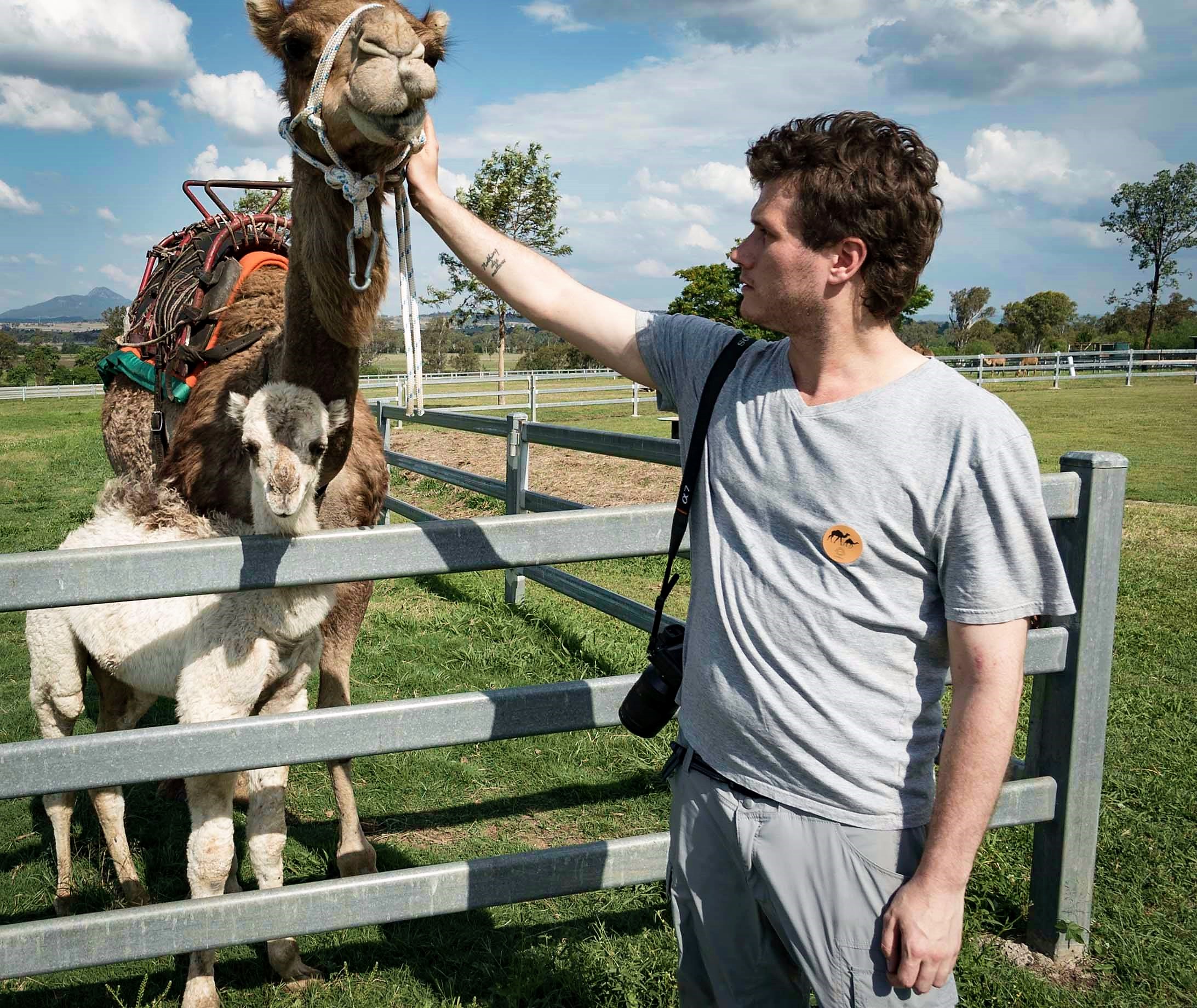
After being raided by police in 2015 (approximately 8 months after releasing Lucent), I bought a new computer, downloaded all of the videos I’d uploaded over the years, and cut them into a 4 minute video called “Thousand Eyes”, which has since been used in creative street activism all over the world and opened the eyes of many.
The charges – the first case of “ag-gag” in Australia – were ultimately dismissed in court, but we learned a lot about the methods and types of evidence police use when going after activists. It led to a widespread adoption of encrypted messaging and storage, clearing of metadata from photos and footage, and awareness of location data captured through cell tower pings and retained by phone service providers.
In Christianity, Jesus consistently gives moral priority to the most vulnerable. Is it reasonable for modern Christians to reclaim the use of the word “dominion” by drawing on this example?
Absolutely. The concept or role of ‘dominion’, for it to have a place in our society, should be one of protection and moral responsibility – the privileged empowering and protecting the rights of the less privileged. Veganism is the absolute moral baseline for anyone who believes that animals deserve to be free from suffering or exploitation.
In what ways can Christians play an active role in ending animal suffering?
By practically extending their encouragement of compassion to non-human animals also. For example, serving plant milks at post-service refreshments and ensuring vegan options are provided at community meals. Also, Dominion was made in order to expose the truth of animal suffering. Christians can join this fight for truth by highlighting the cruel ways animals are used and abused by humans and speak openly about them in their Bible studies and sermons. Why not arrange to have a screening of Dominion shown in a church hall and discuss it over vegan snacks? Truth has the ability to bring freedom to humans and animals alike. As Jesus said, “Then you will know the truth, and truth will set you free”.


